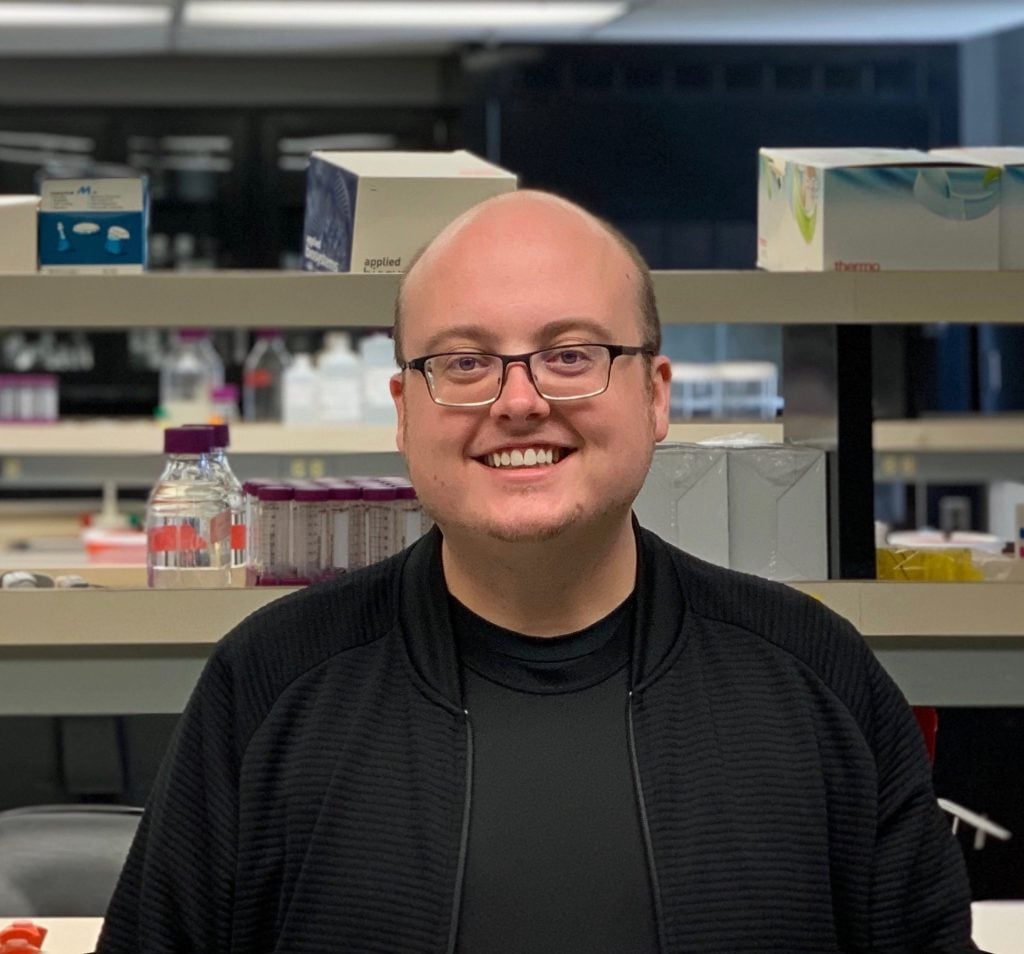MEET THE RESEARCHERS: APDA RESEARCH ROUNDTABLE
Meet the researchers who are on the front lines of Parkinson’s disease (PD) research! Hear about their important work and ask them questions live during the program.
Special introduction by Dr. David Standaert, Chairman of APDA’s Scientific Advisory Board
The American Parkinson Disease Association (APDA) proudly invests in the most promising researchers and scientific projects focused on the discovery of the causes of PD, finding the cure for PD, and improving the lives of those living with PD.
These four APDA researchers will tell you about the exciting work that they are doing; work that is made possible by the grants they have received from APDA. After their presentations, you will have the chance to ask them questions about their PD research, along with Dr. Standaert for the Live Q&A.
Speakers
Brian Daniels, PhD
Rutgers, The State University of NJ, Piscataway, NJ
Research Focus: Investigating RIPK3 as a driver of inflammatory astrocyte activation in Parkinson’s Disease
Current research suggests that inflammation in the brain may contribute to the destruction of nerve cells in PD. We are studying the mechanisms by which inflammation contributes to the cell death of dopamine neurons, and are focusing on one particular molecule called RIPK3.
Vikram Khurana, MD, PhD
Brigham & Women’s Hospital / Harvard Medical School, Boston, MA
Research Focus: Molecular mechanisms of perturbed mRNA metabolism in alpha-synucleinopathy
Parkinson’s disease (PD) is characterized by the abnormal accumulation of a protein called α -synuclein in nerve cells. We created stem cells from people with PD who have α-synuclein mutations and are using these cells to understand what goes wrong in PD. We are focusing on the interaction between α -synuclein and mRNA, the intermediary molecule between DNA and the proteins that it encodes, to try to understand if these interactions contribute to disease.

John P. Hussman Institute for Human Genomics and John T. Macdonald Department of Human Genetics, University of Miami, Miller School of Medicine, Miami, FL
Research Focus: Genetic factors for Parkinson Disease in Hispanics
PD affects individuals of all races and ethnicities. Most studies of PD however, have been conducted in individuals of European descent (non-Hispanic whites). We are evaluating the frequency of known PD genes in the Hispanic population, to further our understanding of PD in this demographic.

Boston University, Boston, MA
Research Focus: Alleviating depression and cognitive impairment in Parkinson’s disease through telehealth psychotherapy
Depression and cognitive impairment are both common non-motor symptoms of PD. Cognitive-behavioral therapy has been shown to be an effective treatment, but for many reasons, including lack of available health care providers, many people with PD are unable to attend weekly face-to-face therapy sessions. We are evaluating the feasibility, acceptability, and preliminary efficacy of live videoconference cognitive behavioral therapy for the treatment of depression and cognitive impairment in PD.

Chairman of the APDA Scientific Advisory Board
Dr. Standaert is the John N. Whitaker Professor of Neurology, Chair of the Department of Neurology, and Director of the Division of Movement Disorders at the University of Alabama at Birmingham. His lab studies inflammatory signaling mechanisms in Parkinson’s disease (PD), with the aim of validating them as potential targets for neuroprotective therapies. Dr. Standaert is also the Director of the APDA Center for Advanced Research at the University of Alabama at Birmingham and Chairman of the APDA Scientific Advisory Board.


